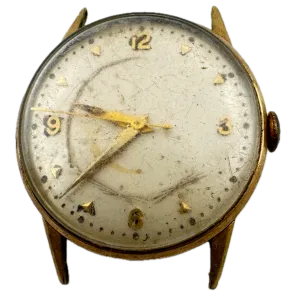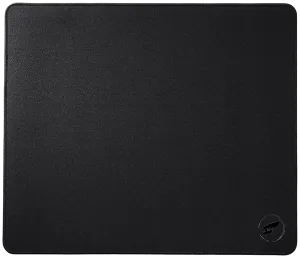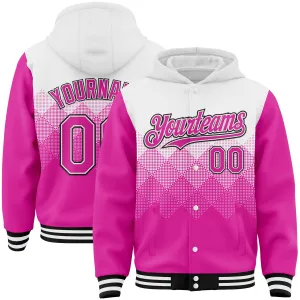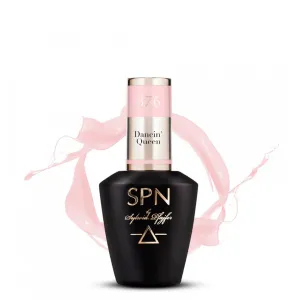In the rapidly evolving landscape of healthcare, understanding the competitive dynamics is crucial for stakeholders. HealthCare Global Enterprises Limited stands at the intersection of opportunity and challenge, shaped by Michael Porter’s Five Forces. From the bargaining power of suppliers and customers to the threat of new entrants and substitutes, each force plays a pivotal role in determining the strategic direction of the business. Dive in to explore how these forces influence not only the company's growth but also the future of healthcare.
HealthCare Global Enterprises Limited - Porter's Five Forces: Bargaining power of suppliers
The bargaining power of suppliers plays a crucial role in determining the operational costs and overall profitability of HealthCare Global Enterprises Limited (HCG). Several factors influence this dynamic, including limited supplier options for specialized equipment, dependence on pharmaceutical companies, and regulatory compliance.
Limited Supplier Options for Specialized Equipment
In the healthcare sector, particularly in diagnostics and imaging, HCG relies on specialized equipment. A report by Frost & Sullivan indicated that the medical imaging equipment market was valued at approximately USD 40 billion in 2022, with only a few key players, including GE Healthcare and Siemens Healthineers, dominating the market. This concentration limits HCG's bargaining power and increases vulnerability to price hikes.
High Dependence on Pharmaceutical Companies
HCG's operational framework is heavily reliant on pharmaceutical suppliers for essential drugs and treatments. In FY 2023, HCG reported that about 30% of its total procurement costs were dedicated to pharmaceuticals. The global pharmaceutical market is expected to surpass USD 1.5 trillion by 2025, emphasizing the importance of suppliers in shaping costs.
Potential for Increased Costs from Patented Technology
Patented technologies often inflate costs due to lack of competition. In 2022, approximately 60% of new drugs launched were under patent protection. This scenario creates challenges for HCG, as it must negotiate prices with suppliers holding exclusive rights to such technologies, which could lead to substantial price increases over time. The average cost of a new drug in the U.S. can exceed USD 2.6 billion, affecting HCG's procurement budget.
Supplier Consolidation Increases Leverage
Recent trends indicate a significant consolidation among suppliers in the healthcare industry. For instance, major pharmaceutical companies have merged, resulting in fewer entities controlling the supply chain. For example, AbbVie and Allergan's merger in 2020 was valued at USD 63 billion, further consolidating market power. This consolidation allows remaining suppliers to exercise greater control over pricing and terms, impacting HCG's cost structure.
Regulatory Compliance Impacts Supplier Choices
Regulatory compliance requirements can limit HCG's options for suppliers. The healthcare industry is subject to stringent regulations, including those imposed by the FDA and EMA. Noncompliance costs can reach USD 2.8 billion annually for healthcare providers. This compliance burden necessitates that HCG chooses suppliers who meet these regulations, leaving fewer options and potentially higher costs.
| Factor | Data/Statistical Information |
|---|---|
| Medical Imaging Equipment Market Value | USD 40 billion (2022) |
| Percentage of Procurement Costs from Pharmaceuticals | 30% |
| Projected Global Pharmaceutical Market Value | USD 1.5 trillion (2025) |
| Average Cost of New Drug | USD 2.6 billion |
| Annual Cost of Noncompliance | USD 2.8 billion |
| Value of AbbVie and Allergan Merger | USD 63 billion (2020) |
HealthCare Global Enterprises Limited - Porter's Five Forces: Bargaining power of customers
The bargaining power of customers in the context of HealthCare Global Enterprises Limited (HCG) is influenced by several dynamic factors, impacting the cost and quality of healthcare services provided.
Growing patient awareness and choice
Patients are increasingly informed about their healthcare options, leading to enhanced choice when selecting healthcare providers. This trend is reflected in the growing number of healthcare websites and platforms that provide information on quality, costs, and patient experiences. According to a survey by the Health Research Institute, 72% of patients actively seek information about their healthcare providers before making decisions.
High cost sensitivity among patients
Cost sensitivity plays a significant role in patient decision-making. In India, for instance, a report from Research and Markets indicates that the average out-of-pocket expenditure on healthcare is around 62%, which places a heavy financial burden on patients and elevates their sensitivity to treatment costs. This high cost sensitivity has resulted in patients seeking more cost-effective healthcare solutions, pressuring providers to keep prices competitive.
Rising negotiation power of insurance companies
Insurance companies have gained considerable negotiation power due to their role in healthcare funding. The top five insurance companies in India, including Star Health and Allied Insurance and Max Bupa Health Insurance, control about 75% of the market. This concentration enables these companies to negotiate lower costs for services, thereby influencing pricing strategies at HealthCare Global Enterprises.
Availability of alternative treatment centers
The proliferation of alternative treatment options has elevated the bargaining power of customers. HCG faces competition from various healthcare centers, including private hospitals, specialty clinics, and alternative medicine providers. Data shows that the number of private hospitals in India reached 78,000 as of 2022, indicating numerous choices for patients. This availability compels HCG to enhance its service offerings and pricing to maintain patient loyalty.
Influence of patient reviews and online platforms
Online platforms and patient reviews significantly impact consumer choices in healthcare. A study conducted by BrightLocal revealed that approximately 87% of patients trust online reviews as much as personal recommendations. Additionally, 84% of patients use online reviews to evaluate healthcare providers. This trend underscores the importance of maintaining a positive online presence for HCG to attract and retain patients.
| Factor | Impact Description | Statistical Data |
|---|---|---|
| Patient Awareness | Increased informed decision-making | 72% of patients research providers |
| Cost Sensitivity | Financial pressure on decision-making | 62% out-of-pocket expenditure |
| Insurance Power | Negotiation for lower service costs | 75% market control by top five companies |
| Alternative Options | Increased competition for patient loyalty | 78,000 private hospitals in India |
| Online Reviews | Influence purchasing decisions | 87% trust online reviews |
HealthCare Global Enterprises Limited - Porter's Five Forces: Competitive rivalry
Intense competition among private healthcare providers significantly impacts HealthCare Global Enterprises Limited (HCG). As of 2023, HCG competes with over 50 private hospital chains in India alone, including major players like Apollo Hospitals and Fortis Healthcare, each vying for market share in a rapidly growing healthcare sector. The Indian healthcare market is projected to reach USD 372 billion by 2022, indicating the financial stakes at play.
Aggressive pricing strategies in the market have led to price wars among competitors, making it increasingly difficult for HCG to maintain its margins. For instance, the average cost for a coronary artery bypass graft in India varies between INR 1.2 lakhs to INR 3 lakhs depending on the hospital. HCG's pricing must remain competitive to attract patients while ensuring revenue stability.
Differentiation through specialized services and technology is crucial in this crowded market. HCG emphasizes its advanced cancer care facilities and state-of-the-art technology, positioning itself as a leader in oncology services. According to the National Cancer Registry Program, there were approximately 1.16 million new cancer cases in India in 2020, highlighting the growing demand for specialized treatment. HCG treats over 50,000 cancer patients every year, showcasing its significant market penetration.
Regional expansion of competitors is another factor intensifying rivalry. Competitors like Max Healthcare have expanded their footprint to multiple states, increasing their operational capabilities and attracting a broader patient base. For instance, Max Healthcare operates 14 hospitals across Delhi-NCR, while HCG has recently expanded to 11 locations with plans for further growth.
Increasing investment in marketing and branding is essential for survival in this competitive landscape. HCG allocated approximately INR 250 million for marketing in the last fiscal year, focusing on digital campaigns and patient engagement initiatives. In comparison, Apollo Hospitals spent around INR 500 million on similar endeavors, highlighting the need for continuous investment to maintain visibility and relevance in the market.
| Competitor | Number of Hospitals | Market Share (%) | Annual Marketing Budget (INR million) |
|---|---|---|---|
| HealthCare Global Enterprises Limited | 11 | 5.0 | 250 |
| Apollo Hospitals | 71 | 15.0 | 500 |
| Fortis Healthcare | 45 | 7.5 | 300 |
| Max Healthcare | 14 | 6.0 | 400 |
The competition within the healthcare industry is characterized by a constant push for innovation, cost containment, and brand visibility. HCG's ability to navigate these challenges will be crucial as it strives to enhance its market position amidst fierce rivalry.
HealthCare Global Enterprises Limited - Porter's Five Forces: Threat of substitutes
The healthcare landscape is increasingly influenced by several factors that raise the threat of substitutes for HealthCare Global Enterprises Limited (HCG). Understanding these dynamics is essential for evaluating competitive positioning in the market.
Emergence of telemedicine and digital health solutions
The global telemedicine market was valued at approximately $45.4 billion in 2020 and is projected to reach $175.5 billion by 2026, growing at a CAGR of 26.5%. This rise in telemedicine adoption offers patients alternatives that can substitute traditional in-person consultations, thus impacting HCG’s patient inflow.
Availability of generic medications
The generics market is expected to reach $482 billion by 2024. With the patent expiration of several blockbuster drugs, HCG faces pressure from generic alternatives that typically cost 30%-80% less than their branded counterparts. The high availability of generics enhances the threat of substitution, as patients may opt for lower-cost options unless HCG can justify its pricing based on quality or service.
Alternative medical treatments and traditional therapies
Holistic and alternative medicine practices, such as acupuncture and herbal treatments, have been experiencing a surge in interest, with the global complementary and alternative medicine market valued at approximately $82 billion in 2022. This growth represents a 23% growth rate over the previous five years, thereby indicating a robust challenge to traditional healthcare models, including those offered by HCG.
Growth of healthcare startups offering niche services
In 2021 alone, healthcare startups received over $29.1 billion in venture capital funding, signaling strong investor confidence in disruptive alternatives. Startups are increasingly focusing on niche markets, which can attract patients away from established healthcare providers like HCG. This surge includes specialized services like mental health apps and personalized medicine, which can provide competitive alternatives.
Rising use of wearable health technology for diagnosis
The wearable health technology market is expected to grow from $32.63 billion in 2020 to $99.21 billion by 2027, at a CAGR of 16.9%. Devices such as smartwatches and fitness trackers are becoming popular for health monitoring, allowing users to track vital signs and health metrics without necessarily consulting a healthcare provider. This trend poses a direct threat to HCG’s diagnostic services.
| Factor | Market Size (2020) | Projected Market Size (2026/2027) | CAGR (%) |
|---|---|---|---|
| Telemedicine | $45.4 billion | $175.5 billion | 26.5% |
| Generics | – | $482 billion (2024) | – |
| Alternative Medicine | $82 billion | – | 23% |
| Healthcare Startups | $29.1 billion (2021) | – | – |
| Wearable Technology | $32.63 billion | $99.21 billion | 16.9% |
These factors illustrate the significant threat of substitutes that HealthCare Global Enterprises Limited faces. The ability to adapt to these trends will be crucial for maintaining market share and ensuring sustainable growth in the competitive healthcare landscape.
HealthCare Global Enterprises Limited - Porter's Five Forces: Threat of new entrants
The healthcare industry exhibits high entry barriers due to stringent regulatory requirements. According to the National Health Authority, compliance with regulations such as the National Accreditation Board for Hospitals and Healthcare Providers (NABH) can take over 1 to 3 years for new entrants. This regulatory framework ensures that new players must invest considerable time and resources before being operational.
Significant capital investment is essential for establishing infrastructure in the healthcare sector. As per a report from India Brand Equity Foundation (IBEF), the healthcare sector in India requires an estimated investment of around USD 200 billion by 2025 to meet the growing demand for quality healthcare services. This figure highlights the financial hurdles that new entrants face, limiting the number of players who can afford to enter the market.
Brand loyalty towards established healthcare providers significantly impacts new entrants. A survey conducted by PricewaterhouseCoopers (PwC) revealed that around 75% of consumers are likely to stay with their current healthcare providers due to trust and established relationships. This loyalty presents a substantial challenge for newcomers attempting to attract patients.
Economies of scale favor larger, existing players, making it difficult for new entrants to compete on pricing and service delivery. The top healthcare companies such as Apollo Hospitals and Fortis Healthcare report revenue figures of approximately USD 1 billion and USD 700 million respectively in 2022. Larger organizations can distribute fixed costs over a greater volume, thereby reducing the average cost per service, which can be a formidable obstacle for smaller, new entrants.
Challenges in establishing trust and a high-quality service reputation are significant barriers as well. According to a study published in the Journal of Healthcare Management, 80% of patients strongly prefer referrals and recommendations for healthcare services. New entrants without a robust reputation may struggle to achieve necessary credibility, making it difficult to gain a foothold in the market.
| Barrier Factor | Details | Impact on New Entrants |
|---|---|---|
| Regulatory Requirements | Compliance with NABH and other regulations, taking 1-3 years | High – delays entry and increases costs |
| Capital Investment | Estimated USD 200 billion needed by 2025 in India | High – limits accessibility for small players |
| Brand Loyalty | 75% of consumers likely to stay with current providers | High – difficulty in attracting patients |
| Economies of Scale | Apollo Hospitals: USD 1 billion revenue; Fortis: USD 700 million revenue | High – larger players have cost advantages |
| Trust and Reputation | 80% of patients rely on recommendations | High – new entrants lack established credibility |
In navigating the complex landscape of healthcare, HealthCare Global Enterprises Limited faces a dynamic interplay of competitive forces that shape its strategic decisions and operational resilience. Understanding these forces—ranging from the bargaining power of suppliers and customers to threats from new entrants and substitutes—provides invaluable insights into the company's strengths and vulnerabilities, ultimately guiding its path towards sustained growth and innovation in an ever-evolving industry.
[right_ad_blog]










